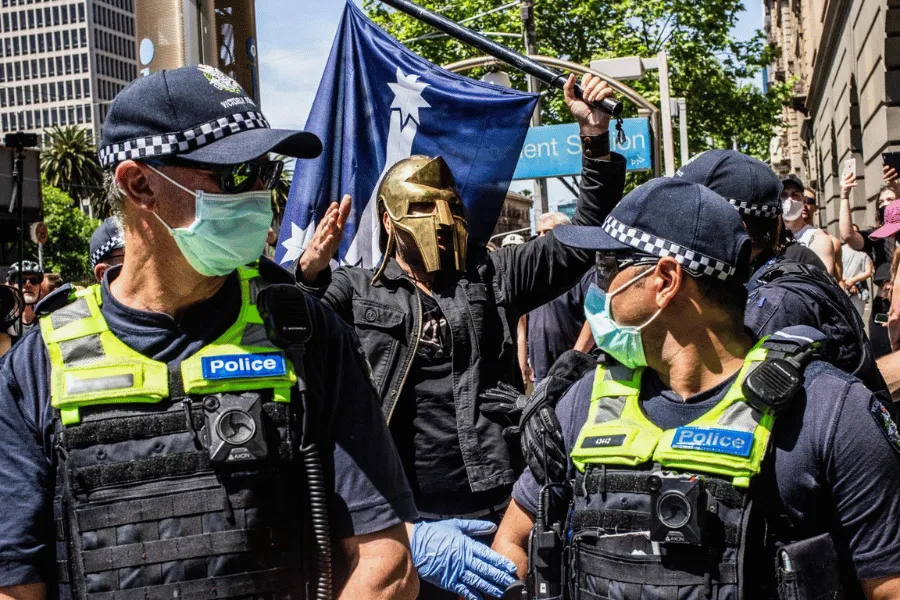New legislation shows that the Australian Government and ASIO are heading in a concerning direction, while targeted communities are still in dark about what is being done to address white nationalist terrorism.
The Australian Security Intelligence Organisation Amendment Bill 2020 introduced on Wednesday into Parliament amends ASIO’s frameworks for compulsory questioning and surveillance devices.
AMAN is very concerned that such powers will disproportionately affect Australian Muslims, due to unaddressed institutional and personal racial bias.
This comes at a time when Australian Muslims are still looking for answers about what commitments have been enacted since the Christchurch Call to make all Australians safe against white nationalist terrorism.
After the Christchurch terror attack, the Australian Government created a Taskforce that made a series of recommendations, but there has been no visibility about what has been implemented since it met last in June 2019.
Professor Mohamad Abdalla, a Board Director of AMAN said, ‘Australian Muslim organisations were never given an opportunity to provide feedback to this Taskforce, or any government entity, on how existing frameworks can be strengthened to detect white nationalist terror propaganda and racially motivated violence.’
‘Meanwhile there continues to be substantial evidence of white nationalist terror propaganda being allowed to flourish on mainstream and fringe digital platforms.’
‘We would like to have confidence that these pressing concerns are being dealt with, but in a manner that maintains an appropriate separation of powers and oversight.’
The Bill must face full parliamentary scrutiny to investigate for example, why the execution of certain powers should be transferred from a statutory body to ‘verbal authority’ by a Minister; why minors should be forced into questioning; and why ‘internal authorisation’ would be sufficient for surveillance devices.
Adel Salman, also a Board Director of AMAN, said, ‘Australian Muslims have endured decades of saturated media coverage of overseas terror groups misrepresenting their religion, very public anti-Muslim sentiment in political discourse, and many incidences of ‘institutional betrayal’ where persons have been unfairly targeted by police or security agencies, or not supported when seeking help or justice.’
‘The effects of being wrongly detained and questioned due to racial bias has long lasting effects on those who are targeted and their families – bringing shame, ongoing anxiety and trauma.’
The detection and arrest of real terrorists, regardless of their background or motivation, is important to all Australians, but there is a separation of powers, due process and oversight for a reason.
Australian Security Intelligence Organisation Amendment Bill 2020
Details from the Explanatory Memorandum
The Bill amends the compulsory questioning framework in the ASIO Act by:
- enabling the use of questioning warrants in relation to espionage, politically motivated violence (including terrorism) and acts of foreign interference, as defined in section 4 of the ASIO Act, rather than only in relation to terrorism offences;
- streamlining the process for requesting and issuing a questioning warrant by enabling the Attorney-General to issue questioning warrants directly, removing the role of the issuing authority;
- enabling ASIO to request, and the Attorney-General to issue, questioning warrants orally in an emergency;
- subject to a number of safeguards – permitting ASIO to seek a questioning warrant in relation to minors aged 14 to 18 years old, but only where the minor is themselves the target of an ASIO investigation in relation to politically motivated violence;
The Bill also amends the surveillance device framework in the ASIO Act to promote increased operational agility…The Bill amends the ASIO Act in this regard by:
- enabling ASIO to use tracking devices with internal authorisation in certain circumstances, rather than requiring a warrant;
- clarifying that the surveillance device framework is permissive and does not require ASIO to obtain a warrant where conduct would not otherwise be unlawful; and
- updating the definition of ‘tracking device’ and effectively modernising ASIO’s capabilities.
